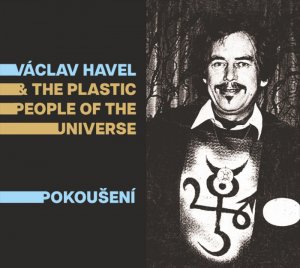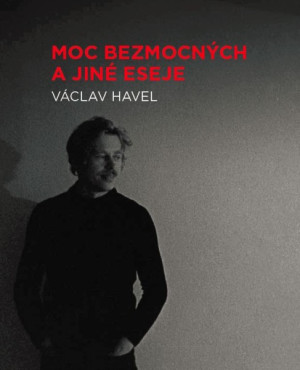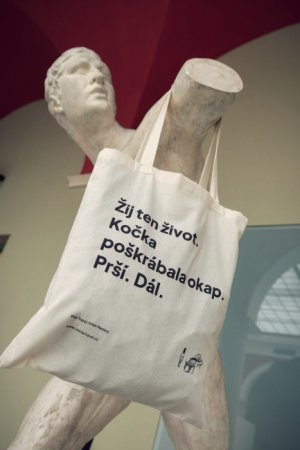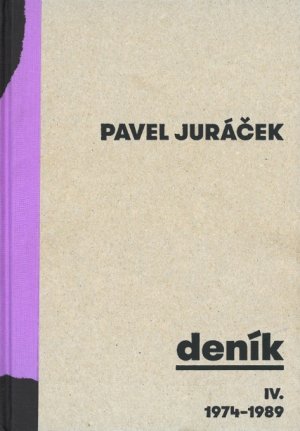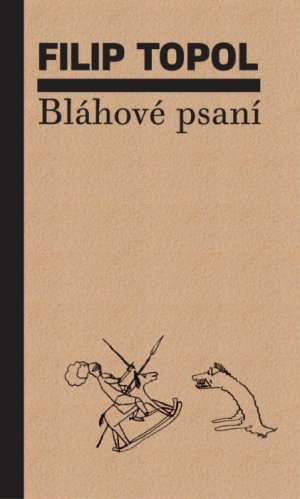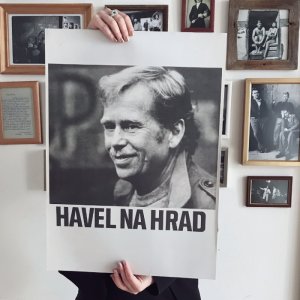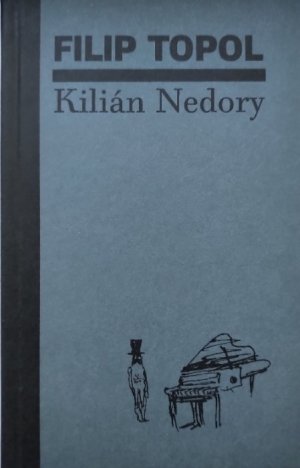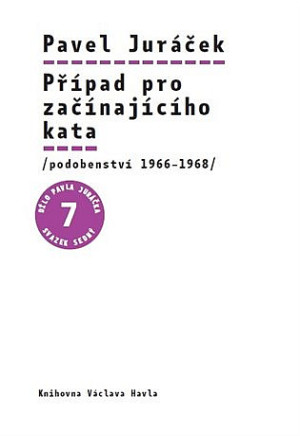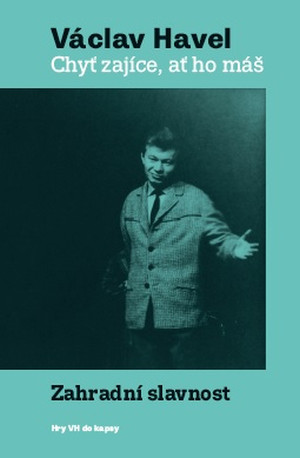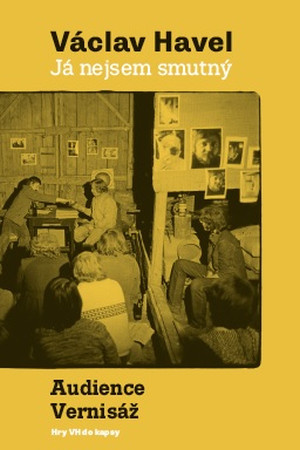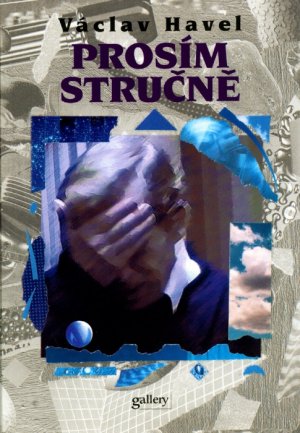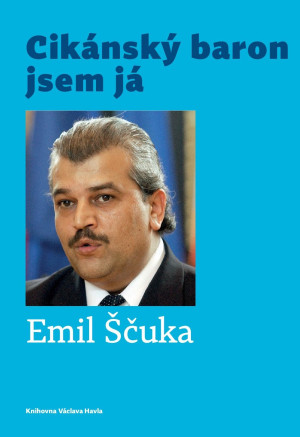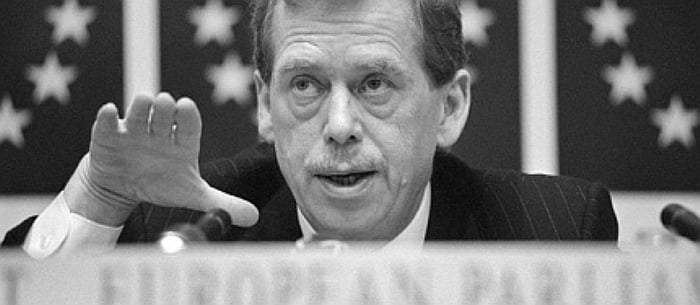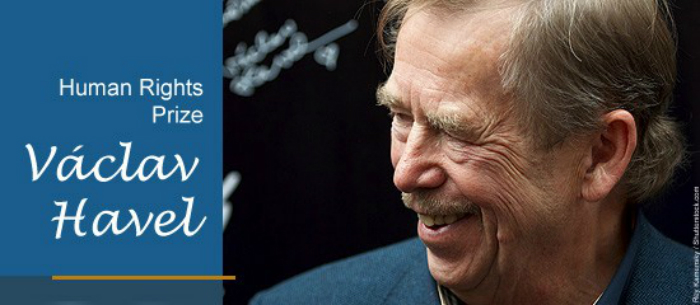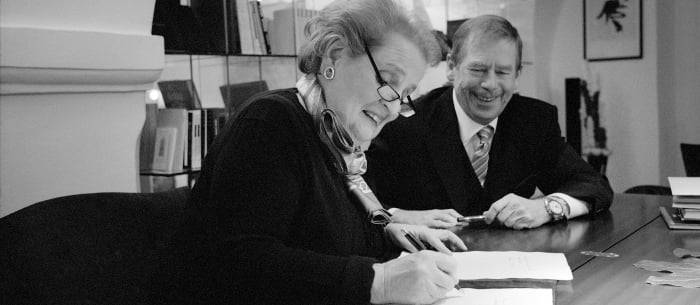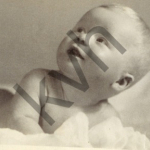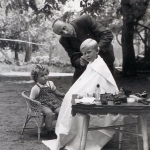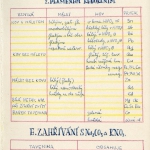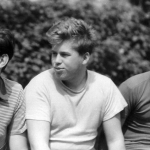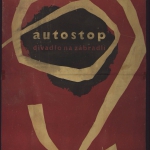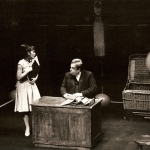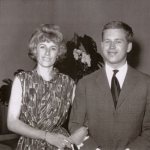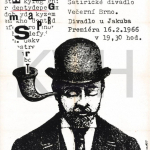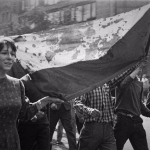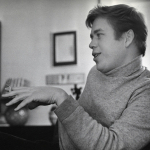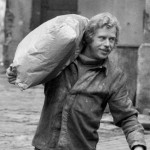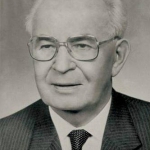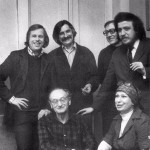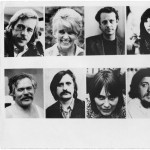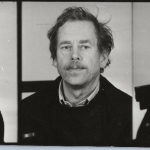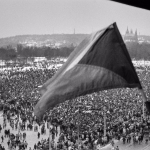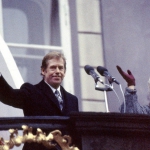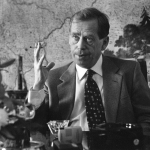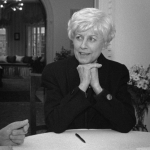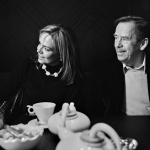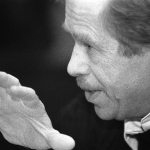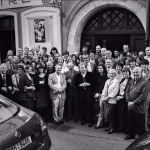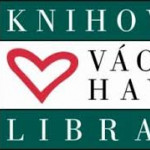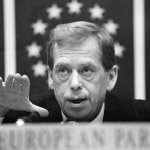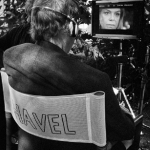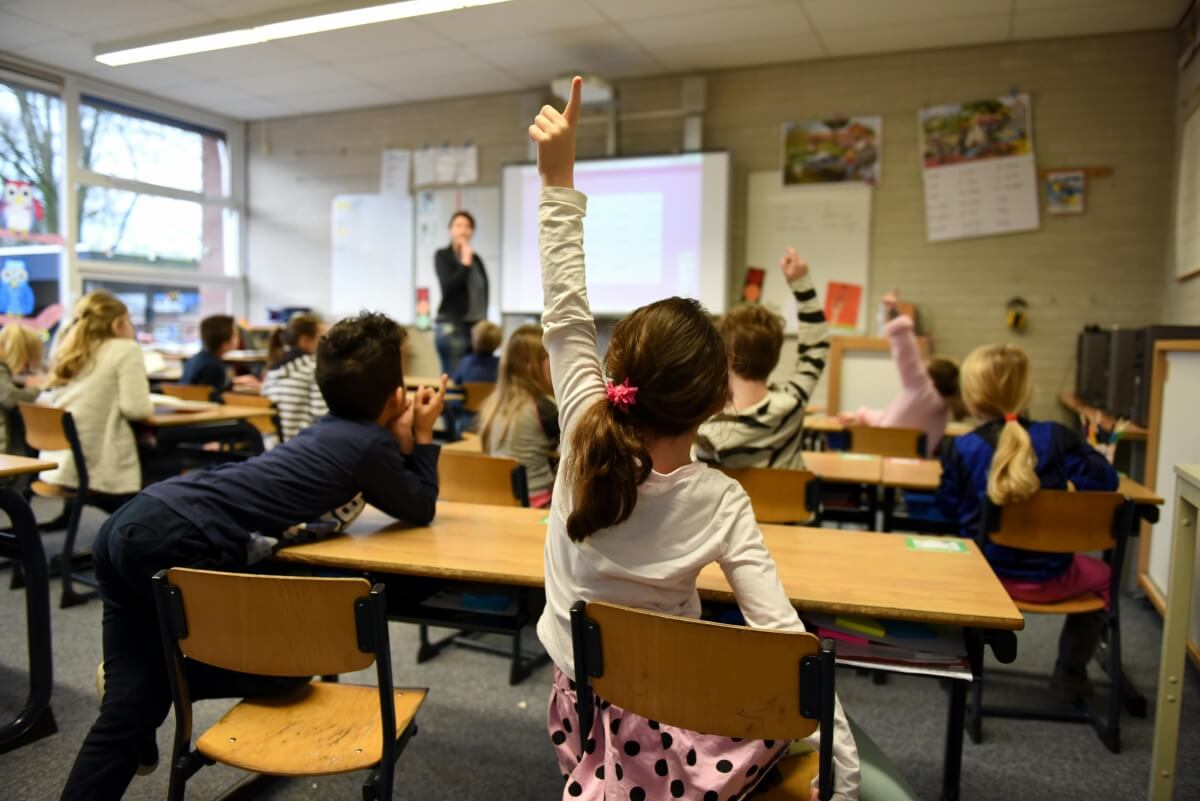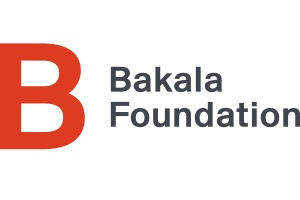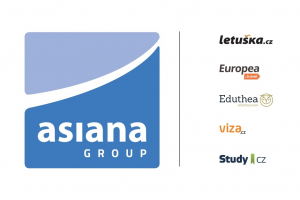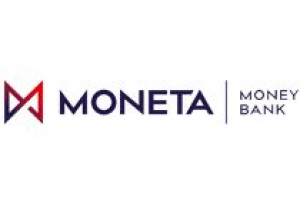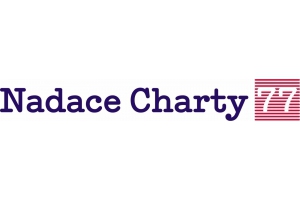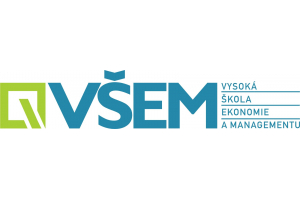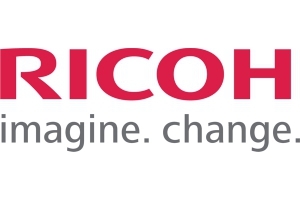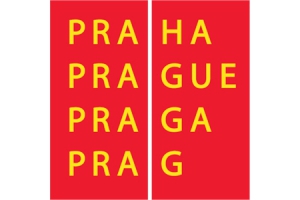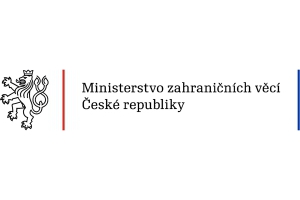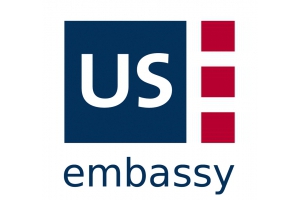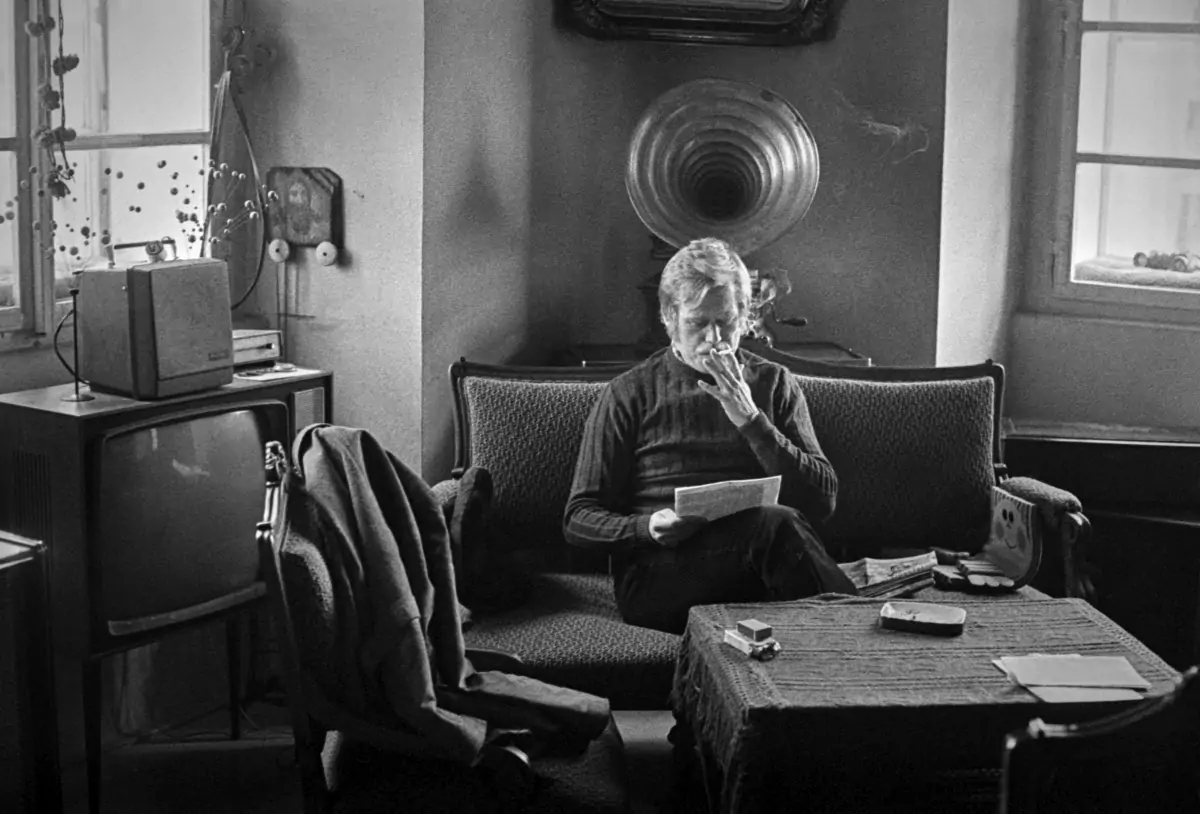
Club / News / Program
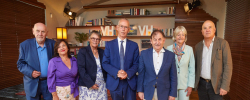
Three candidates shortlisted for the 2023 Václav Havel Prize 05/09/23
The selection panel of the Václav Havel Human Rights Prize, which rewards outstanding civil society action in defence of human rights in Europe and beyond, has today announced the shortlist for the 2023 Award. Meeting in Prague today, the panel – made up of independent figures from the world of human rights and chaired by the President of the Parliamentary Assembly of the Council of Europe (PACE) Tiny Kox – decided to shortlist the following three nominees, in alphabetical order: More
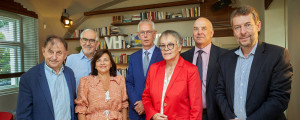
Three candidates shortlisted for the 2022 Václav Havel Human Rights Prize 06/09/22
The discussion among the seven-member jury helmed by the president of the Parliamentary Assembly of the Council of Europe centred on the importance of the issue of human rights during this tense period. The finalists include Vladimir Kara-Murza, a political prisoner and leading Russian democracy campaigner; Ukraine’s 5 AM Coalition, which gathers evidence of human rights abuses stemming from Russia’s invasion of the country; and Hungary’s Rainbow Coalition defending LGBTQIA+ rights. “This year’s selection reflects the central role that human rights play in the current European crisis,” says Michael Žantovský, jury member and executive director of the Václav Havel Library, which bestows the prize in cooperation with the Parliamentary Assembly of the Council of Europe and Nadace Charty 77.
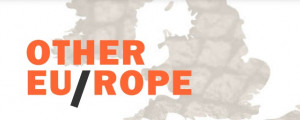
The Other Europe 27/04/22
Dear Friends, After three years we have completed the international project The Other Europe, during which, in cooperation with partner institutions, we have processed and made public recordings of interviews shot in 1987 and 1988 behind the Iron Curtain, and in exile, with important representatives of the opposition and the arts, as well as random citizens. Over those three years we have prepared video, audio and text of 106 interviews in speakers’ native languages and English translation. Despite public health restrictions in the Covid period, we have jointly prepared 16 international conferences and public presentations in six Central and Eastern European states. More
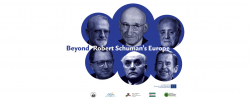
From Schuman to Havel – what next? 16/02/22
The Václav Havel Library is a proud partner of the project Beyond Robert Schuman’s Europe More
Program for April 2018<>
entry-free
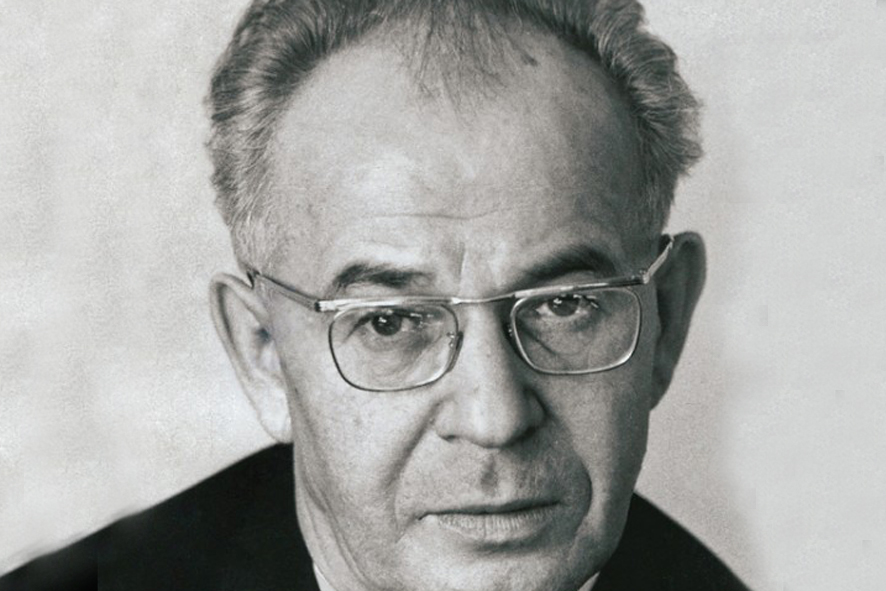
Michal Macháček: Husák
- Where: Václav Havel Library, Ostrovní 13, Prague 110 00
- When: April 3, 2018, 19:00 – 21:00
The name Gustáv Husák (1913–1991) is most closely associated with the period of so-called normalisation in the 1970s and 1980s, when a generation of “Husák’s children” were born. A new biography of Husák by Michal Macháček traces the long career of the final president of Communist Czechoslovakia from the very beginnings, exploring Husák’s origins and family background, youth, studies and enrolment in the Communist Party of Czechoslovakia, his activities in the war, the Slovak National Uprising and post-war politics, his conviction in a trial of Slovak “bourgeois nationalists”, his successful efforts at rehabilitation and his gradual return to the echelons of power. The book also delivers new findings about Husák’s personal life. In Macháček’s book this symbol of torpor and stagnation comes across as a more multi-layered personality than the common perception.
The book is based on hitherto unknown sources in the Czech, Slovak and Russian archives and materials from the private archive of Husák’s family. It is the first comprehensive Husák monograph produced in Czech or international historiography.
Historian Kristina Andělová will chair a discussion with author Michal Macháček, accompanied by a presentation of photographs and film footage. Jáchym Topol will read excerpts from the book.
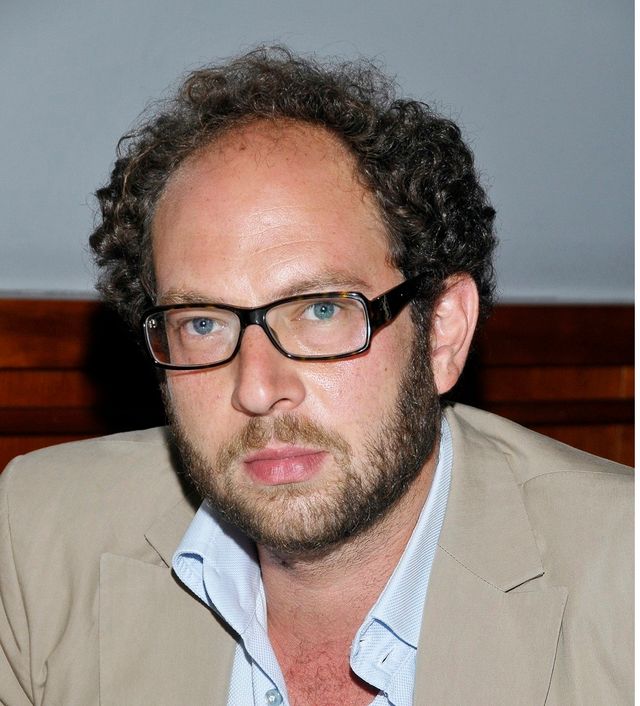
Olivier Guez: The Disappearance of Joseph Mengele
- Where: Václav Havel Library, Ostrovní 13, Prague 110 00
- When: April 5, 2018, 19:00 – 21:00
Meeting with the French writer and journalist Olivier Guez, who won the prestigious Prix Renaudot last year for his novel The Disappearance of Joseph Mengele, a compelling exploration of the soul and life of the infamous “Angel of Death” following his escape to South America.
The Disappearance of Joseph Mengele is coming out in Czech in autumn 2018 on the Garamond imprint. During the evening the audience will hear a number of excerpts from the novel, which is currently being translated.
Oliver Guez is not just a novelist but also a well-known journalist and reporter. He came to broader attention in France thanks to his book The Impossible Return, focused on the post-war return of Jewish inhabitants to Germany. He is also known for The Fall of the Wall, in which he and Jean-Marc Gonin, the current editor-in-chief of the daily Le Figaro, recorded the testimonies of actors in the events that led to the collapse of the Berlin Wall.
The meeting will take place in French with simultaneous translation.
Organised by the Václav Havel Library in cooperation with Prague’s Institut francais.
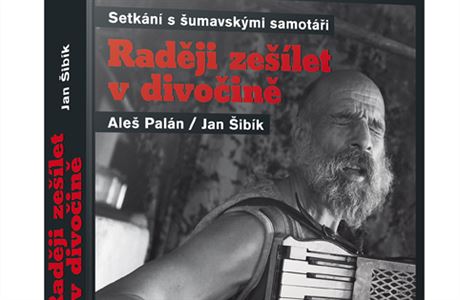
Aleš Palán and Jan Šibík: The Wilderness is the Best Place to Go Crazy
- Where: Václav Havel Library, Ostrovní 13, Prague 110 00
- When: April 6, 2018, 19:00 – 21:00
Raději zešílet v divočině (The Wilderness is the Best Place to Go Crazy) is a book about recluses living in the Šumava. Some have built a shack in the forest, others live in caravans or in mountain solitude. Some can be reached by car, others on foot only. They are Šumava pilgrims and loners whose attitudes and lives are totally out of the ordinary.
Via eight interviews with people living permanently outside civilisation, novelist Aleš Palán provides insights into a world of whose existence we know nothing. We encounter wild animals, cruel winters and even apparitions. The book, complemented by the photography of Jan Šibík (Czech Press Photo, Golden Prisma Award), is an exploration of secret corners of both the landscape and the human soul. Of long-term solitude and isolation. Of a parallel world that asks very unsettling questions of ours.
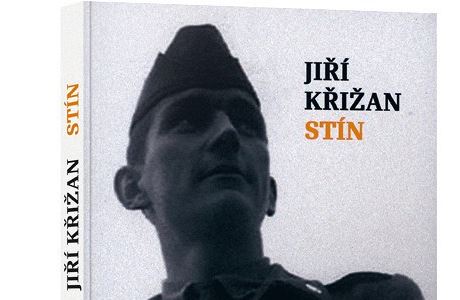
Jiří Křižan: The Shadow
- Where: Václav Havel Library, Ostrovní 13, Prague 110 00
- When: April 9, 2018, 19:00 – 21:00
Jiří Křižan’s novel Stín (The Shadow) is the powerfully autobiographical story of an orphaned country boy raised by his old-world, fair-minded grandfather interspersed with “half-witted” tales from alternative military service. It is a narrative that evokes an almost physical sense of what it is like to grow up on the margins of society as a stigmatised “class enemy” and second-class “former person” due to political tyranny.
Jiří Křižan (1941–2010) was one of the most distinctive Czech screenwriters of the second half of the 20th century (e.g., Shadows of a Hot Summer, 1977, dir. František Vláčil; Signum laudis 1980, dir. Martin Hollý; Sekal Has to Die, 1998, dir. Vladimír Michálek) and a leading representative of the pre-Velvet Revolution opposition (initiator of a January 1989 campaign to have Václav Havel released from jail, founding member of Civic Forum).
The author and his colourful life will be discussed by Karel Schwarzenberg and his daughters Rebeka Bartůňková and Barbora Křižanová.
The book’s editor Pavel Hájek will host the evening.
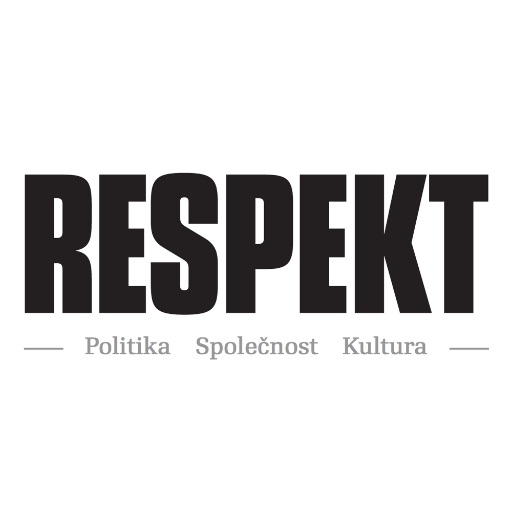
Debate with Respekt
- Where: Václav Havel Library, Ostrovní 13, Prague 110 00
- When: April 10, 2018, 19:00 – 21:00
Discussion with Respekt editors and their guests on a topical issue. More information will be posted at least one week before the event at www.vaclavhavel-library.org
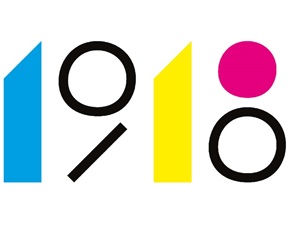
Remembering 1918: Turning point for Europe
- Where: Václav Havel Library, Ostrovní 13, Prague 110 00
- When: April 11, 2018, 16:30 – 20:30
Free entrance. Registration required.
What is the meaning of 1918 for today’s European politics and societies? What is the role of this history in envisioning Europe of the 21st century?
Historians, journalists, teachers and other speakers from 7 European countries will compare their perspectives and discuss the contemporary relevance of 1918, especially with regard to the interpretations ascribed to 1918 throughout the 20th century. The debate should result in a better understanding of the 1918 and its aftermath as seen from Western and Central European perspective and how this perception shapes today’s views, how the interpretation of history varies in countries and what possible impact it has on politics among the countries in the EU.
The debate is organized in cooperation with Czech Centres, Václav Havel Library, BOZAR Centre for Fine Arts, Finnish Institute for the Benelux, Culture Action Europe, and EUNIC Prague, Austrian Cultural Forum, Slovak Institute and Polish Institute Prague.
The debate will be held in English with simultaneous translation into Czech.
16:30 Opening speeches
- Václav Havel Library and Czech Centres representatives
17:00 – 18:30 Understanding of the year 1918 in “old” and “new” states
- Understanding of the events in 1918 by the former empires and the new nations - do the differences still prevail? Do we feel nostalgia, satisfaction, bitterness, indifference…? And what does the mythology of 1918 mean for the future of Europe? Does it – and if yes, how - influence today’s politics and societies?
- Moderator: Adéla Gjuričová, historian
- Speakers: Hungary - György Csepeli, social psychologist / Slovakia - Miroslav Michela, historian / Austria - Christophe Prantner, journalist / Czech Republic - Jan Hanzlík, historian
18:30 – 19:00 Break
19:00 -20:30 Understanding of the year 1918 in Western and Central Europe
- Are there differences in understanding the 1918 between Western and Central Europe? If so, what are they and how are they reflected in different approaches to today’s reality? Is the year 1918 also perceived as the year of emergence of new states in Western Europe? How was the breakdown of old empires viewed in Belgium and Finland?
- Moderator: Pavlína Kvapilová, journalist
- Speakers: Belgium - Machteld Venken, associate professor at University Vienna / Finland – Kalle Kallio, director of the Finnish Labour Museum Werstas / Czech Republic – Václav Kuneš, history teacher / Poland - Lukasz Jasina, historian
The event is part of a larger project initiated by BOZAR Centre for Fine Arts, Belgium entitled “1918 EUROPEAN DREAMS OF MODERNITY 100 YEARS ON” and supported by the Europe for Citizens program. The project includes two debates in Brussels and one debate in Helsinki and another debate in Budapest on the similar topic of today’s perception of the year 1918.
For more information about the project, please visit: https://www.bozar.be/en/activities/137924-1918-european-dreams-of-modernity
Accompannying event of the conference is a series of film screenings about the year 1918 organized in cooperation with EUNIC Prague, for more information please visit: www.facebook.com/events/196896901076314/
INFORMATION ON SPEAKERS:
György Csepeli is a Hungarian social scientist. Born in 1946, graduated from ELTE, Budapest in 1970. Professor of Social Psychology at ELTE, Chair of the Interdisciplinary Social Science Research Doctoral Program. He has been teaching at various Universities including UCLA, University of Michigan, New School in New York and Montclair State University. His research interests cover areas of social psychology of intergroup relations such as national identity, anti-Semitism, anti-Gypsy sentiments and conflict resolution.
Adéla Gjuričová is a senior researcher at the Institute of Contemporary History at the Academy of Science in Prague. She focuses on politics and society during the late socialist era, the 1989 revolutions and post-communist transformations. She is co-author of Divided by the Past: Political Identities in the Czech Republic after 1989 (Václav Havel Library 2011).
Jan Biggles Hanzlík was born in Prague, he studied history at the Philosophical Faculty of the Charles University. He had various occupations: journalist, photographer, translator, screenwriter, and writer. For almost ten years he was the chief editor of historical revue Memory and History published by the Institute for the Study of Totalitarian Regimes. At this moment he is a freelance screenwriter.
Łukasz Jasina has a Ph.D in Film Studies (Polish Academy of Sciences). He graduated from Law Studies, History and Journalist Studies at John Paul II Catholic University of Lublin. He spent two Fellowships in Harvard Ukrainian Institute and Toronto University. He was Head of the Eastern branch and publicist in internet weekly "Kultura Liberalna“ and assistant professor at John Paul Ii Catholic University of Lublin and Head of International Department in Polish History Museum. Łukasz Jasina is an author of few hundred publications. He is currently employed at the Polish Institute of International Affairs.
Kalle Kallio is an expert on labour history and difficult heritage, including remembering Finnish Civil War 1918. Since 2005, he has worked as a museum director in The Finnish Labour Museum, which is a national museum of working life and social history. Museum has two branches: Museum of the Deaf and Lenin Museum, renewed in summer 2016. He also acts as a chairman of Worklab (International Association of Labour Museums).
Pavlína Kvapilová is Czech presenter, independent producer, consultant and social media strategist. Later she headed special coverage at CT24, all news channel of Czech TV. Pavlína and her team introduced social media to news, created and shaped interactive formats like Hyde Park CT24. Pavlína then became Director of Czech TV New Media Division. Her heart project is called Elegantní Česko – Elegant Czechs. It explores the heritage of so called First Republic (Czechoslovakia 1918-38) and inspires wide public to create and adopt modern forms of good old know-how - in fashion, manners, business habits, lifestyle as the whole.
Václav Kuneš teaches Czech language and literature and History at the Grammar school of J. V. Jirsík in České Budějovice. He specializes in methods of modern history teaching. He worked with his students on historical projects about the Holocaust in Slovakia and Poland. He also participated in international projects within Comenius and Erasmus Plus programmes. He organizes historical excursions for his students both in the Czech Republic and abroad as well as discussions with witnesses of historical events.
Miroslav Michela, PhD. is working as historian at the Institute of Czech History, Faculty of Arts at the Charles University and Institute of History, Slovak Academy of Sciences. Miroslav is a co-founder and former editor-in-chief of journal www.forumhistoriae.sk (2007-2013). His main fields of academic interest include 20th-century history, popular culture and nationalism studies, and politics of memory, with a focus on Czechoslovakia and East-Central Europe.
Christoph Prantner is a Senior Editor for the Austrian daily Der Standard in Vienna. He holds a master's degree in Philosophy, Political Science and History (University of Vienna and University of California Los Angeles/UCLA). Mr. Prantner writes since 1997 for Der Standard. In 2001 he worked as a Reporter for Die Welt in Berlin, in 2007 he was the first U.S.-Austrian Journalism Exchange Fellow at USA Today in Washington D.C. From 2007 until 2013 he was Head of the Foreign Desk at Der Standard. Since July 2013 he runs the opinion pages at the paper and writes political commentaries, essays and a well-read blog. He has been a contributor for the BBC, Al-Jazeera, Europäische Rundschau, Internazionale, EAST Magazine and Reczpospolita.
Machteld Venken, PhD is a Belgian Historian and Slavist. She received her PhD from the Catholic University in Leuven (KU Leuven), Belgium. After running a research project at Warsaw University in Poland, she joined the University of Vienna. Most recently, she edited the volume Borderland Studies Meets Child Studies. A European Encounter (2017).
You can find other information at the FB event.
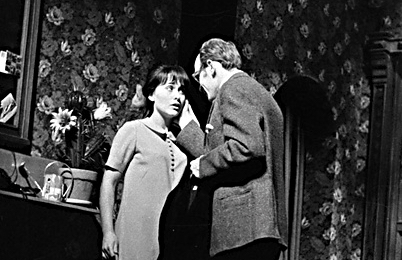
The Increased Difficulty of Concentration on Spring 1968
- Where: Václav Havel Library, Ostrovní 13, Prague 110 00
- When: April 12, 2018, 19:00 – 21:00
Fifty years ago, on 11 April 1968, the last premiere for some time of a play by Václav Havel, The Increased Difficulty of Concentration, took place at the Divadlo Na zábradlí theatre. In this evening we will explore several seemingly different themes of that 1968 spring. Names from the “golden era” of the famous theatre are leaving Divadlo Na zábradlí. During the Prague Spring, Václav Havel becomes involved – in his own way, of course – in the process of democratisation. At the same time, however, he packs his suitcase for a trip to the US and Western Europe. What’s more, his creative plans start to focus more on filmmaking.
We will discuss his fresh findings about the history of Divadlo Na zábradlí with theatre historian Martin J. Švejda, as well as presenting lesser-known documents from that era from the archive of the Václav Havel Library. And there will be theatre.
In the second half of the evening Academy of Performing Arts acting students will perform, overseen by teacher Jaroslava Šiktancová, excerpts from The Increased Difficulty of Concentration, a comedy about a man incapable of choosing between his wife and a lover and whose mind becomes incapable of working toward anything conceptually or even orienting itself in time.
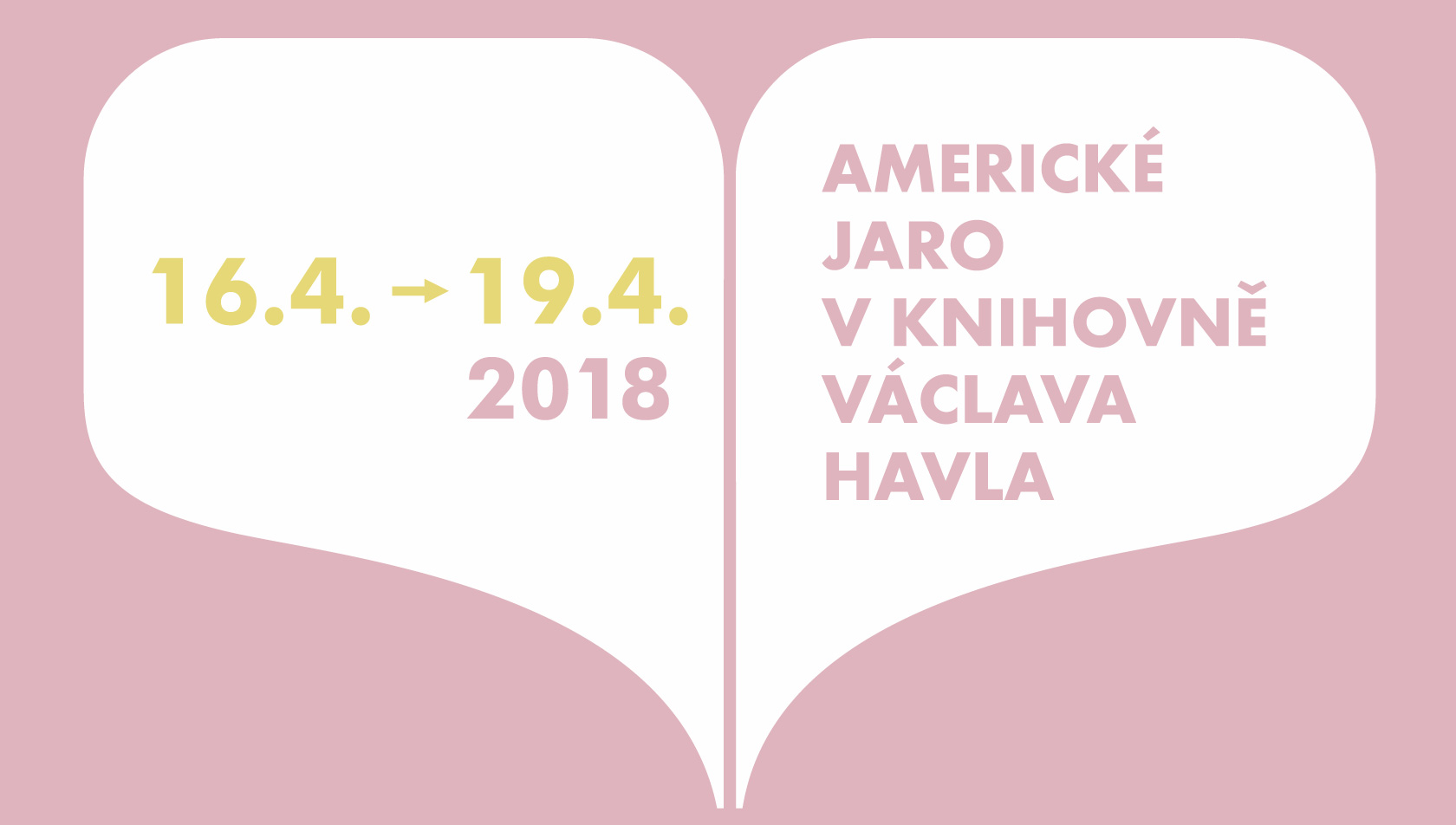
American Spring Festival at Václav Havel Library
- Where: Václav Havel Library, Ostrovní 13, Prague 110 00
- When: April 16, 2018, 19:00 – April 19, 2018, 21:00
The international festival American Spring is a unique arts project that has been running for 13 years and showcases emerging American and Czech artists. The festival’s programme comprises classical and jazz concerts, public debates, exhibitions, theatre performances and film screenings in which artists and personalities from various other fields appear together. It is organised by the Institute for Czech-American Relations, which in cooperation with the Václav Havel Library has prepared a four-day accompanying programme focused on current themes in Czech-American relations and commemorating important figures associated with the 100th anniversary of the creation of Czechoslovakia.
16. 4. / PO / 19.00 / OSTROVNÍ 13
Czech-American Relations after 1918
Czech-American relations and geopolitics in important years ending in eight (1918, 1938, 1948 and 1968). Might anything have been different? And what can the Czech Republic expect from the turbulent presidency of Donald Trump? A talk featuring Czech historians and diplomats. Chaired by Daniel Anýž.
17. 4. / ÚT / 19.00 / OSTROVNÍ 13
Czech-American Relations after 1989
A century ago the US was involved in the foundation of Czechoslovakia. Does this place any obligations on us regarding the future? And is it possibly to live off the post-1989 tradition of strong alliance alone? Contemporary Czech-American relations will be discussed by figures who have been inspired by the US in their professional lives. Chaired by Daniel Anýž.
18. 4. / ST / 19.00 / OSTROVNÍ 13
An Evening for H. G. Skilling
Friends and colleagues will come together to remember the still relevant legacy of H.G. Skilling, an expert on Czech and Slovak history, supporter of Charter 77 and recipient of Czechoslovakia’s Order of the White Lion.
Guests will include Jiřina Šiklová, Miroslav Kusý and Vilém Prečan.
Chaired by David Vaughan.
19. 4. / ČT / 19.00 / OSTROVNÍ 13
Dear Mother / Dear Alice
Staged reading of letters by exceptional women close to TGM – Charlotte and Alice Masaryk.
Actors: Daniela Kolářová, Marie Málková, dramaturgy: Lucie Němečková, director: Zuzana Burianová. The reading will be followed by a debate with Czech historian Marie Neudorflová, who has been focused on Masaryk-related subjects for some years.
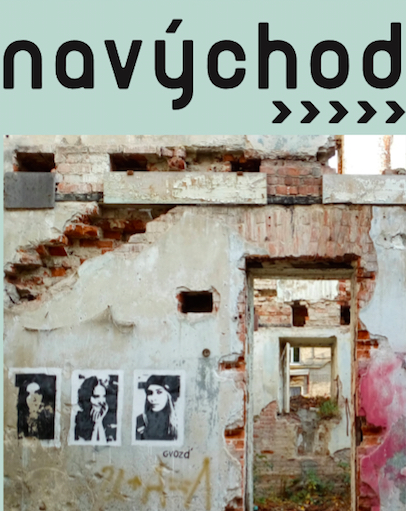
NaVýchod Magazine: Debate with Petra Procházková
- Where: Václav Havel Library, Ostrovní 13, Prague 110 00
- When: April 23, 2018, 19:00 – 21:00
For the second year, the revived NaVýchod magazine is focused on arts and political events to the east of the Czech Republic, a region that in recent years has seen ethnic and military conflicts: Russian aggression in Ukraine, the annexation of Crimea, the “freezing” of Transnistria, unceasing tensions in Armenian-Azerbaijani relations and the wars in Nagorno-Karabakh, Abkhazia and South Ossetia.
The presentation of the magazine will be accompanied by a discussion of these unstable territories featuring Petra Procházková, who has long been focused on the region as a journalist and eye witness, providing reports on the conflicts in Donbas, Ossetia, Abkhazia, Georgia, Nagorno-Karabakh and Afghanistan.
Chaired by Radko Mokryk from the Institute of East European Studies at Charles University’s Faculty of Arts and editor of the magazine NaVýchod.
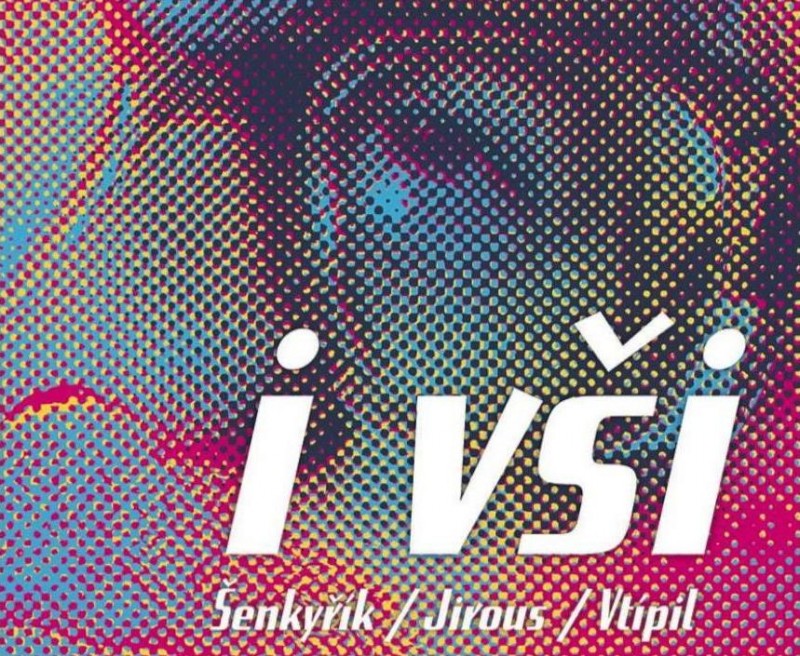
Šenkyřík, Jirous, Vtípil: And also fleas
- Where: Václav Havel Library, Ostrovní 13, Prague 110 00
- When: April 24, 2018, 19:00 – 21:00
The poems of Ivan Martin Jirous, in which hyenas, jackals and werewolves appear alongside angels and the Virgin Mary, were set to music by Tomáš Šenkýřík over a period of 15 years.
“I brought a recording to Magor (Jirous) in Prostřední Vydří, but he wasn’t home so I placed it on the window ledge. About two years later I met Magor at Roxy and he spoke enthusiastically about how I had put it to music. I was euphoric about it.” After several more meetings Jirous gave Šenkýřík permission to put any of his poems to music. The album I vši, which came out on the Indies label in August 2014, contains 14 pieces produced by Tomáš Vtípil.
Performing:
Tomáš Šenkyřík – guitar, vocals (Cymbelín)
Tomáš Vtípil – violin, samples, vocals (DG 307, Načeva, Urband...)
Marie Puttnerová – vocals (Jablkoň, Půljablkoň, Alotrio, Kein art Ensemble...)
Tomáš Hradil – electric guitar, vocals (Los Perdidos, Heda Pěňová chanson, Chorchestr...)
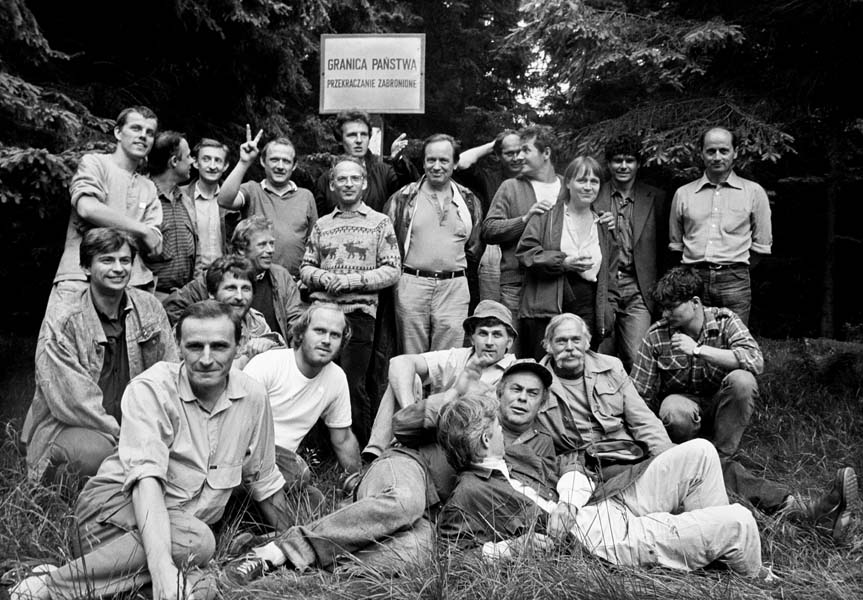
Polish-Czechoslovak Solidarity
- Where: Václav Havel Library, Ostrovní 13, Prague 110 00
- When: April 25, 2018, 19:00 – 21:00
Meetings in forests on the guarded Polish-Czechoslovak border. Shared interest in the fates of the political prisoners of both Communist states. The exchange of samizdat publications and information. The phenomenon of Polish-Czechoslovak solidarity brings together courage, friendship and sense of humour. The new Czech translation of the book Hranicím navzdory. Příběh Polsko-československé solidarity (Despite the Border: The Story of Polish-Czechoslovak Solidarity) (ÚSTR, Prague 2018) will be launched by its authors, Łukasz Kamiński, a Polish historian and former director of Poland’s Institute of National Rembembrance, and Petr Blažek, a Czech historian based at the Institute for the Study of Totalitarian Regimes, and many Poles and Czechs who remember those times.
The discussion will be chaired by Maciej Ruczaj, director of the Polish Institute in Prague.
A unique international opposition group emerged in 1981 when representatives of Poland’s Workers’ Defence Committee (KOR) and Charter 77 signed a secret agreement on cooperation.
It is symbolic that Polish and Czech historians – Łukasz Kamiński, Petr Blažek and Grzegorz Majewski – were involved in a publication devoted to Polish-Czech Solidarity, an initiative based on mutual sympathy and bringing together figures whose outlooks were frequently at odds. The book opens up the broad question of the potential for cooperation and strength concealed in help and solidarity “despite the border”. The proof of its staying power is that Polish-Czechoslovak solidarity is still alive and active. Come with us on a “journey into Czech-Polish friendship.”
The evening will take place in Czech and Polish with simultaneous interpretation provided.
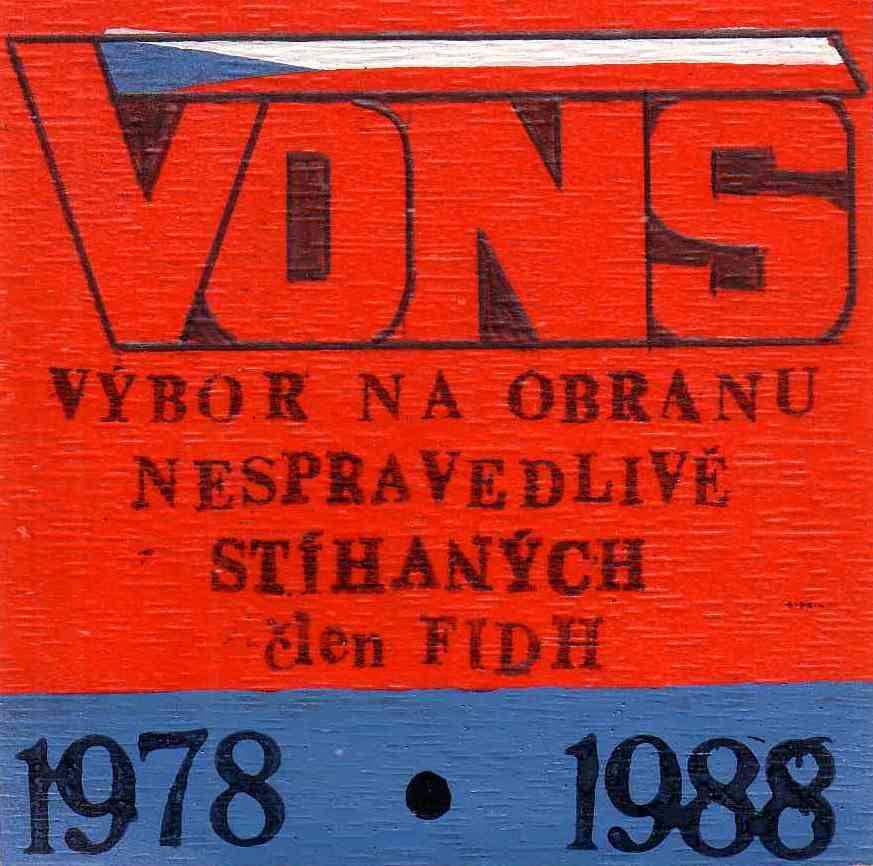
The Committee for the Defence of the Unjustly Prosecuted
- Where: Václav Havel Library, Ostrovní 13, Prague 110 00
- When: April 26, 2018, 17:00 – 21:00
A gathering marking the 40th anniversary of its foundation.
The reason for the establishment of the Committee for the Defence of the Unjustly Prosecuted (VONS in Czech) in April 1978 was the necessity of drawing attention at home and especially abroad to those opponents of totalitarianism who were not publicly known, meaning there were no campaigns in their support.
In discussion panels we will explore the creation of the committee, how it operated and how its information was distributed abroad. We will also reflect on the dramatic events of 1979, when the state decided to destroy the committee; in May 16 members were arrested, of which six (including Václav Havel) received jail terms of several years.
17.00 – 18.30 Panel I
The Creation of VONS
The motive for the establishment of the Committee for the Defence of the Unjustly Prosecuted was in part positive experience with the work of the “Committee for Three”, an effort to draw attention to the cases of people who weren’t widely known either in the West or in Czechoslovakia, meaning the state was able to persecute them without risk of public campaigns in their support.
Guests: Kamila Bendová, Anna Šabatová and Zofia Romaszewská (Poland)
Moderator: Petruška Šustrová.
19.00 – 20.30 Panel II
Efforts to Destroy VONS and its Survival
In May 1979 the state decided to destroy the Committee for the Defence of the Unjustly Prosecuted. Sixteen members were arrested, of which the 10 most active were remanded in custody and six were convicted in winter 1979. However, 12 new members joined and the committee’s work continued.
Guests: Dana Němcová, Ján Čarnogurský (Slovakia), Jiří Gruntorád, Václav Malý and Jan Ruml
Moderator: Petruška Šustrová.
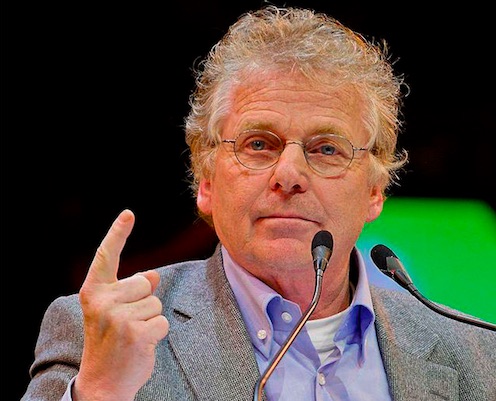
Daniel Cohn-Bendit: De l'Europe des contestations à l'Europe des peurs?
- Where: Václav Havel Library, Ostrovní 13, Prague 110 00
- When: April 27, 2018, 20:00 – 22:00
Débat en français, traduction simultanée assurée. Entre libre, réservation obligatoire sur cette formulaire.
Daniel Cohn-Bendit est un homme politique franco-allemand, acteur de la contestation étudiante de mai 1968. Il a été coprésident du groupe Verts/ALE au Parlement européen et coprésident du Groupe Spinelli, crée afin de renforcer la tendance fédéraliste au Parlement européen.
L’année 1968 fut à plus d’un titre une année révolutionnaire, de contestations, et de remises en causes. Les gens dans toute l’Europe se révoltaient contre le statu quo et réfléchissaient sur leurs valeurs. Aujourd’hui, dans la description du sentiment généralisé des Européens, revient souvent la peur.
Dans les tentatives d’explication de la montée du populisme, on entend souvent que ce sont les choix « des gens déçus par l’establishement », tandis que les mouvements anti-establishement appellent à la défense des valeurs.
De nos jours, peut-être plus que jamais, il existe un sentiment répandu parmi beaucoup d’Européens d’un devoir de protection des valeurs judéo-chrétiennes menacées par l’islamisme radical, la montée de la Chine ou par quelque chose de moins tangible comme la crise d’identité.
Tandis qu’en France l’année 1968 a mené à la transformation profonde de la société, de l’autre côté du Rideau de fer, le Printemps de Prague a été écrasé par des chars d’assaut du Pacte de Varsovie qui ont conduit à la normalisation des années 70. Dans quelle mesure, l’histoire se répétera en 2018 ? L’Europe d’aujourd’hui, est-elle vraiment une Europe des peurs ? Quelle leçon faut-il tirer de 1968 pour affronter mieux les défis de 2018 ?
La conférence de Daniel Cohn-Bendit se déroulera dans le cadre du cycle « Europe des contestations » organisé en collaboration entre l’Institut français de Prague, le think tank Europeum et le Goethe institut.
Havel Channel
Havel Channel je audiovizuální projekt Knihovny Václava Havla, jehož cílem je šířit myšlenkový, literární a politický odkaz Václava Havla, bez ohledu na vzdálenost, zeměpisné hranice či nouzové stavy. Jeho páteř tvoří debaty, vzdělávací projekty a rozhovory. Velký prostor je věnován též konferencím, autorským čtením, záznamům divadelních inscenací a koncertům. Audiovizuální projekt Knihovny Václava Havla Havel Channel se uskutečňuje díky laskavé podpoře Karel Komárek Family Foundation.
Publications / E-shop
The central focus of the Library’s publishing programme is the life and work of Václav Havel, his family and close collaborators and friends. For clarity, the programme is divided into six series: Václav Havel Library Notebooks, Václav Havel Library Editions, Student Line, Talks from Lány, Václav Havel Documents, Works of Pavel Juráček and Václav Havel Library Conferences. Titles that cannot be incorporated into any of the given series but which are nonetheless important for the Library’s publishing activities are issued independently, outside the series framework.
Diary IV. 1974–1989
399,- CZK
Foolish Writing
299,- CZK
Havel to the Castle
149,- CZK
Kilián Nedory
199,- CZK
Case for a Novice Headsman
199,- CZK
I am not sad. Audience & Vernissage
129,- CZK
To the Castle and Back
249,- CZK
I am the Gypsy Baron
299,- CZK
Conferences & prizes
Václav Havel European Dialogues
The Václav Havel European Dialogues is an international project that aims to initiate and stimulate a discussion about issues determining the direction of contemporary Europe while referring to the European spiritual legacy of Václav Havel. This idea takes its main inspiration from Václav Havel’s essay “Power of the Powerless”. More than other similarly focused projects, the Václav Havel European Dialogues aims to offer the “powerless” a platform to express themselves and in so doing to boost their position within Europe.
The Václav Havel European Dialogues is planned as a long-term project and involves cooperation with other organisations in various European cities. Individual meetings, which take the form of a conference, are targeted primarily at secondary and third-level students, as well as specialists and members of the public interested in European issues.
Prague 2022Olomouc Prague 2023PragueMnichov 2020Brussels 2020Prague 2019Brussels 2019Prague 2018Brussels 2018Europe at the Crossroads (e-book)Prague 2017Brussels 2017Prague 2016Brussels 2016Prague 2015Brussels 2015Brussels 2014Berlin 2014Prague 2014 - J. GauckBruges 2014Prague 2014
Václav Havel Human Rights Prize
The Václav Havel Human Rights Prize is awarded each year by the Parliamentary Assembly of the Council of Europe (PACE) in partnership with the Václav Havel Library and the Charta 77 Foundation to reward outstanding civil society action in the defence of human rights in Europe and beyond.
11th Year of the Prize (2023)10th Year of the Prize (2022)9th Year of the Prize (2021)8th Year of the Prize (2020)7th Year of the Prize (2019)6th Year of the Prize (2018)5th Year of the Prize (2017)4th Year of the Prize (2016)3rd Year of the Prize (2015)2nd Year of the Prize (2014)1st Year of the Prize (2013)History of the prize
Havel - Albright Transatlantic Dialogues
Since the first Václav Havel Transatlantic Dialogues at GLOBSEC and FORUM 2000 conferences last year, we have lost another stalwart advocate of the transatlantic bond and of the need to face threats to democracy and international order together on both sides of the Atlantic, the former US Secretary of State Madeleine Albright. In view of the close bond between Václav Havel and Madeleine Albright and, after Havel's death, between the Secretary and the Library, the Václav Havel Library, with the approval of Madeleine Albright's family, renamed and rebranded the program as The Havel-Albright Transatlantic Dialogues (HATD), after the two major figures with roots in Central Europe who have personified the bond. Together, Václav Havel and Madeleine Albright symbolize the transatlantic relationship and the fundamental values underpinning it perhaps better than any other two people in recent history. The upcoming Dialogues “The Indispensable Woman: The Legacy of Madeleine K. Albright”, at the FORUM 2000 conference on September 1, and at the “Havel and our Crisis” conference at Colby College, ME, on September 28, will thus become venues for a well-deserved tribute to the pair we all respected and admired.
Transatlantic Dialogues 2021Transatlantic Dialogues 2022HATD 2022 Prague
Václav Havel
Václav Havel
* 5. 10. 1936 Praha
† 18. 12. 2011 Hrádeček u Trutnova
- spisovatel a dramatik, publicista a filozof
- jeden z trojice prvních mluvčích Charty 77
- vůdčí autorita československé společenské změny v listopadu 1989
- poslední prezident Československa a
- první prezident České republiky
- celoživotní zastánce lidských práv a svobod doma i ve světě.
Educational projects
Archive / Documentation centre / Research projects
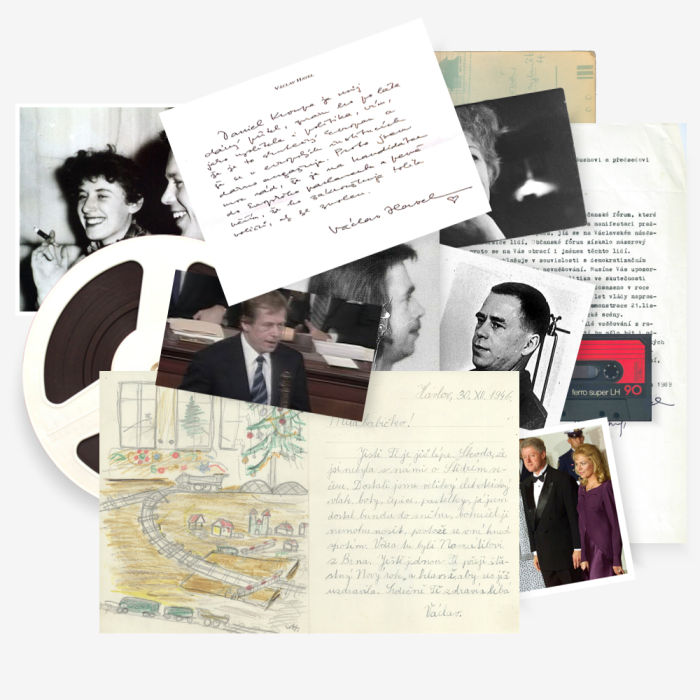
The Václav Havel Library is gradually gathering, digitizing, and making accessible written materials, photographs, sound recordings and other materials linked to the person of Václav Havel.
- 70895 records in total
- 27824 of events in the VH's life
- 2831 of VH's texts
- 2125 of photos
- 403of videos
- 568of audios
- 6604of letters
- 15101of texts about VH
- 8264 of books
- 40647of bibliography records
Access to the database of the VHL’s archives is free and possible after registering as a user. Accessing archival materials that exist in an unreadable form is only possible at the reading room of the Václav Havel Library, Ostrovní 13, 110 00 Prague 1, every Tuesday (except state holidays) from 9:00 to 17:00, or by prior appointment.
We will be glad to answer your queries at archiv@vaclavhavel-library.org.
Sign in (registered users only)
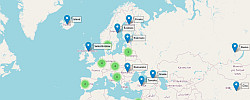
Havel in a nutshell
The virtual exhibition Václav Havel in a Nutshell places the life story of Václav Havel in the broader cultural and historic context in four chronologically distinct chapters with rich visual accompaniment. The exhibition is supplemented by the interactive map Flying the World with Václav Havel, which captures in physical form Havel’s global “footprint”.
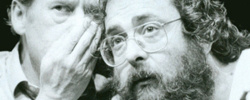
Vladimir Hanzel's revolution
Collage of recollections, images and sound recordings from Vladimír Hanzel, President Václav Havel’s personal secretary, bringing the feverish atmosphere of the Velvet Revolution to life.
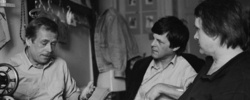
Václav Havel Interviews
A database of all accessible interviews given to print media outlets by the dramatist, writer and political activist Václav Havel between the 1960s and 1989. The resulting collection documents the extraordinary life story of an individual, as well as capturing a specific picture of modern Czechoslovak history at a time when being a free-thinker was more likely to lead to jail than an official public post.
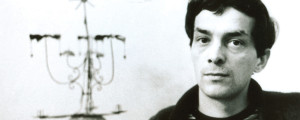
Pavel Juráček Archive
The Pavel Juráček Archive arose in February 2014 when his son Marek Juráček handed over six banana boxes and a typewriter case from his father’s estate to the Václav Havel Library. Thousands of pages of manuscripts, typescripts, photographs, documents and personal and official correspondence are gradually being classified and digitalised. The result of this work should be not only to map the life and work of one of the key figures of the New Wave of Czechoslovak film in the 1960s, but also to make his literary works accessible in the book series The Works of Pavel Juráček.
The aim of the Václav Havel Library is to ensure that Pavel Juráček finds a place in the broader cultural consciousness and to notionally build on the deep friendship he shared with Václav Havel. Soon after Juráček’s death in 1989 Havel said of him: “Pavel was a friend of mine whom I liked very much. He was one of the most sensitive and gentle people I have known – that’s why I cannot write more about him.”
All about Library
The Václav Havel Library works to preserve the legacy of Václav Havel, literary, theatrical and also political, in particular his struggle for freedom, democracy and the defence of human rights. It supports research and education on the life, values and times of Václav Havel as well as the enduring significance of his ideas for both the present and future.
The Václav Havel Library also strives to develop civil society and active civic life, serving as a platform for discussion on issues related to the support and defence of liberty and democracy, both in the Czech Republic and internationally.
The main aims of the Václav Havel Library include
- Organizing archival, archival-research, documentary, museum and library activities focused on the work of Vaclav Havel and documents or objects related to his activities, and carries out professional analysis of their influence on the life and self-reflection of society
- Serving, in a suitable manner, such as through exhibitions, the purpose of education and popularisation functions, thus presenting to the public the historical significance of the fight for human rights and freedoms in the totalitarian period and the formation of civil society during the establishment of democracy
- Organizing scientific research and publication activities in its areas of interest
Podpořte nás
We are well aware that freedom and democracy must be nurtured. Here at Ostrovní 13, but also on the audiovisual platform Havel Channel, we strive to do so through our own educational programmes, talks, discussion meetings, books, exhibitions, concerts, theatre performances. We honour Václav Havel's legacy and wish that the Library be a living organism and open to all. That is why our programme is free of charge for everyone. This would not be possible without regular financial support from our supporters. Become one of them...
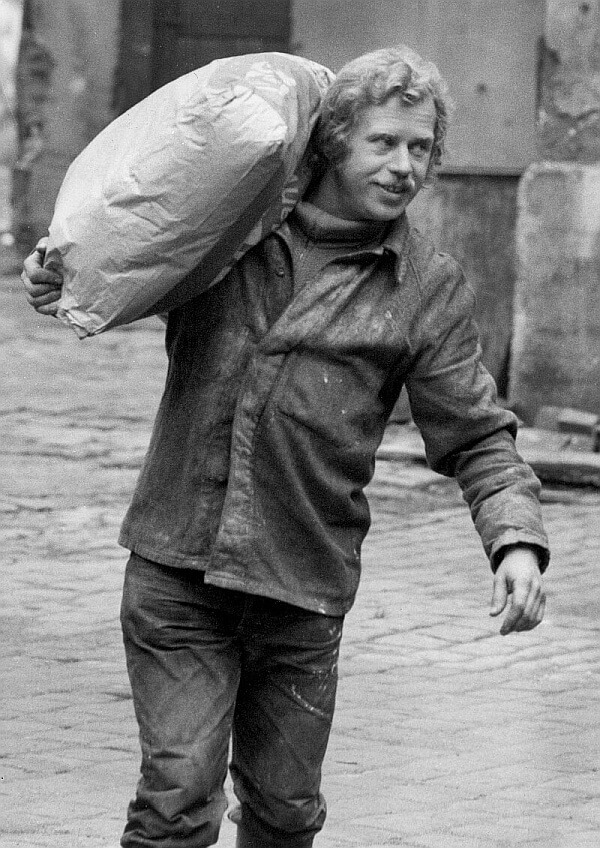
Support us with a financial donation
Does our work make sense to you and do you want to support the activities of the Vaclav Havel Library?
You can easily make a one-time payment by scanning the QR code.
Would you like to contribute regularly? Then we invite you to become a member of the Friends of the Vaclav Havel Library Club. What are the benefits of membership? Find out more.
Help us expand the archive
The Vaclav Havel Library manages an archive of writings, documents, photographs, video recordings and other materials related to the life and work of Vaclav Havel. This archive is predominantly in digital form. If you or someone close to you owns any original texts, correspondence, photographs, speeches or any other work by Vaclav Havel, we would be grateful if you could contact us.
You can donate in other ways too
Supporting a specific charitable or public benefit organization whose activities you appreciate or have been supporting for a long time is also possible through a will. This form of donation is quite common abroad, but in the Czech Republic this tradition is only just taking root.
Share information about us
The Vaclav Havel Library is open to media and promotional cooperation, mutual sharing of links, publishing our banners or information about our events.
For more information, please contact us.
Donations have their rules
At the Vaclav Havel Library, we uphold a transparent, responsible and ethical way of dealing with all those who contribute to fulfilling our purpose and implementing our strategy. Our code of ethics summarizes the basic rules of donations.
Get involved in volunteering
Would you like to get involved as a volunteer? That's great. We welcome anyone who wants to help our work.








